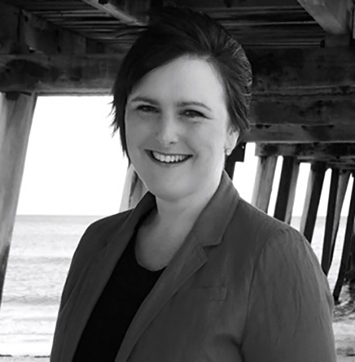
Ms Damarell is a PhD Candidate in the College of Nursing and Health Sciences, exploring general practitioner experiences of managing patients with multimorbidity and a life-limiting illness. She also provides research assistance to projects within the Centre.
In this article, she discusses her research task exploring the GP experience of providing multimorbidity and end-of-life care, and describes her most important publication to date.
What is your main research area, and how did you first get interested in it?
I am exploring the experiences of Australian general practitioners in managing the care of people with two or more chronic, long-term conditions, or ‘multimorbidity’.
According to the World Health Organization and the Academy of Medical Sciences, multimorbidity will become the most significant problem facing healthcare systems in the next twenty or so years. I became interested in understanding the GP experience of this phenomenon upon hearing that more than half of their consultations now involve a person with multimorbidity.
Without significant reform to Australia’s existing fee-for-service model, how are they managing to provide more complex care within the same structures? Furthermore, how are they supported to make clinical decisions for older, complex patients when researchers and practice guideline developers continue to produce evidence using fitter subjects with single conditions?
While the existing research from Australia has explored the experience of multimorbidity from the patient perspective, there is still little evidence of how GPs are faring. My PhD program of study hopes to fill this gap.
How do you envision it to help improve end-of-life care?
Multimorbidity often includes at least one condition which is life-limiting and likely to lead directly to a person’s death. Part of my research investigates how GPs manage multimorbidity once they become aware that the chronic phase is transitioning to an end-of-life phase.
For example, does the presence of additional conditions change how they care for the life-limiting condition? Does it make it harder to identify a transition point? These questions are essential as GPs may need to play a more prominent role in providing palliative care in the future as our population ages.
Many GPs already state they lack the knowledge and confidence to do so and avoid initiating conversations around approaching the end of life with their patients. If multimorbidity imposes a further challenge, this needs to be known and countered with adequate guidance and training.
What are the next steps in terms of rolling out and further collaboration?
I am in the process of finalising my PhD thesis. After its submission, I hope to find ways to highlight my research findings to policymakers and those in a position to address the problems confronting GPs. They are doing an incredible job under extreme conditions. Their voices deserve to be heard.
What was you most recent/most important publication and why did it excite you?
I recently completed a systematic review of all the available studies describing GPs’ firsthand perspectives on managing patients with multimorbidity. BMC Family Practice, a top-ranking journal I admire, then accepted this study for publication.
The study surveyed the international general practice literature as a first step for understanding if there was even a problem requiring attention. It also gave me a sense of the issues to subsequently ask more informed questions of Australian GPs.
The review identified 33 studies from 14 countries, all published since 2010 (which shows how new the interest in this topic is). In synthesising the various findings, it’s clear that GPs across the world are experiencing the same difficulties with multimorbidity, irrespective of their country and its healthcare system.
Most struggle with a lack of supportive evidence, time pressures, and healthcare systems fragmented across specialty lines. The communication between the GP and the other specialists involved in a person’s care can be of poor quality or not forthcoming altogether, which frustrates the GP and jeopardises patient safety.
GPs often feel isolated in their decision making which they describe as risky. They worry about their patients and the quality of care they can provide to them under challenging circumstances. However, I was delighted to find out that GPs tend to rely on the long-term relationships they forge with patients to make individualised clinical judgements based on knowledge of the person’s values and preferences.
What’s good about being a RePaDD RHD?
I have enjoyed the support and collegiality of the RePaDD researcher group during my PhD. They have been generous in sharing their considerable and varied knowledge and skills with me. It is a very supportive group, and we enjoy celebrating each other’s successes.
I enjoy the Tuesday lunchtime RePaDD research seminars too. I can’t wait to see where the Centre goes next.

